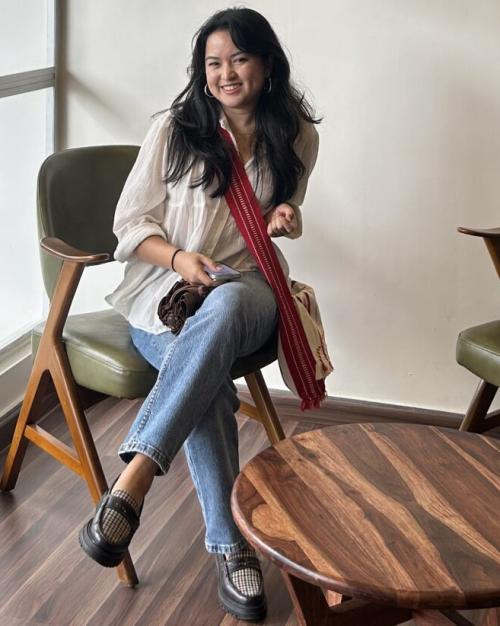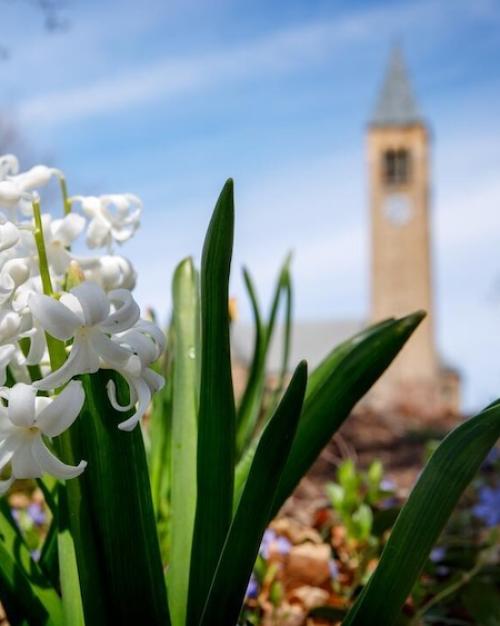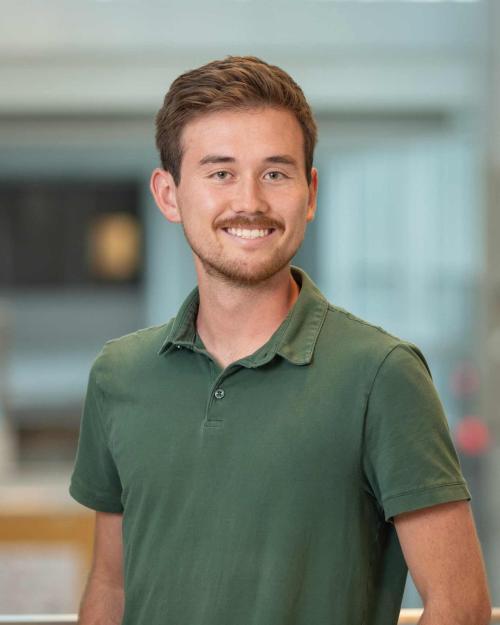Max Link
Environment & Sustainability
Westminster, Colo.
Why did you choose Cornell?
I chose Cornell because of its "work hard, play hard" mentality. The school encourages academic rigor across a wide range of subjects while also providing uncountable opportunities to have fun. I knew that Cornell would challenge me academically and intellectually through many interesting and rigorous classes and preprofessional/extracurricular activities. I would certainly learn through the hard work that Cornell requires inside and outside the classroom. At the same time, there is no shortage of fun things to do outside of school. Coming from Colorado, I was looking for a college surrounded by outdoor recreation and for that to be reflected in the student body. As a result of coming to Cornell, it’s been so easy to camp in the Adirondacks, swim in waterfalls and the Finger Lakes, go on amazing hikes, ski the northeast and trail run. Aside from that, exploring campus opportunities (talks, activities, Johnson Art Museum, etc.) and Ithaca (restaurants, bookstores, Apple Fest, etc.) have contributed to a fantastic college experience. Despite Cornell’s national-class academic focus, I feel as though I have fulfilled and expanded on the most fun parts of the “college experience” and made the most of my four years. When people I meet ask me to describe Cornell, the one word I always give is “fun!” Cornell also originally appeared on my radar because of its mention in chapter 18 of Howard Zinn’s "A People’s History of the United States." In the ‘60s and ‘70s, Cornell was home to a strong antiwar movement that included a rally in Barton Hall during which fugitive activist Daniel Berrigan briefly appeared onstage before the lights went out and he escaped in a Bread and Puppet Theater figure. I wanted to attend a university of students who could question the established norms, and I saw that in Cornell’s history.
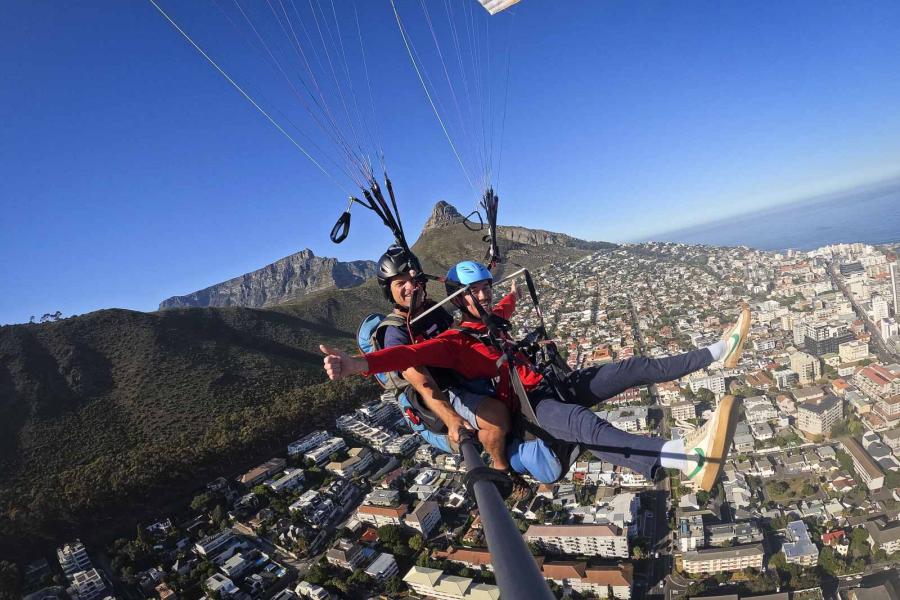
What was your favorite class and why?
Although there are many candidates, my favorite class was NTRES 2100 Introductory Field Biology with Marc Goebel. It was one of the first Environment and Sustainability (E&S) classes I took after switching from a different major, and the experience could not have been more rewarding. The class meets seven hours a week, about six of which were spent outdoors conducting field research. This could mean wading into Fall Creek to catch aquatic organisms, navigating McGowan Woods to identify Beech Bark Disease or boating on Oneida Lake. Field bio class was an incredibly refreshing take on what an education is, and was important to my development as a scholar. It is also a Cornell-specific opportunity that I am grateful to have taken — imagine trying to do field biology in a city or suburb. Although I primarily work in policy, I still apply the skills and attitude I learned in field bio and expect to do so throughout my career.
What is your main extracurricular activity and why is it important to you?
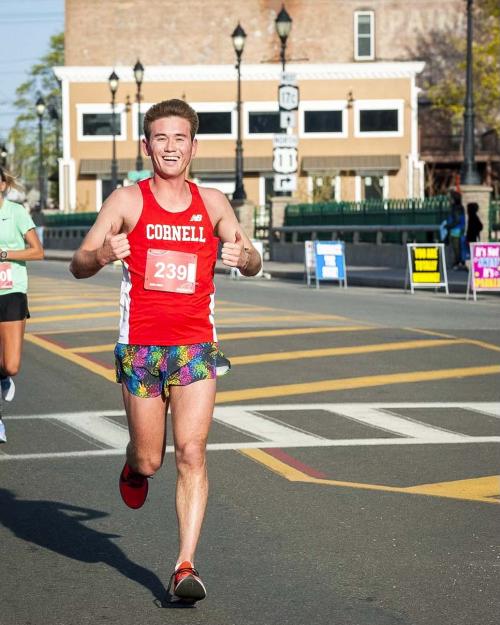
Although I participated in a number of career-relevant extracurriculars, my favorite experiences were through my recreational sports involvement. I spent a few semesters as the worst player on club field hockey, a sport I had never played before. Being terrible at an activity was a great lesson in having fun independent of achievement, something that may not come naturally to a lot of Cornell students. Although I was also in intramural soccer, volleyball and flag football, my primary involvement was through Cornell Running Club (CRC), where I spent the last year as one of the PR chairs. The club was a social hour and exercise at the same time (two essential components of daily life), and a great group of people to hang out with. CRC has given me countless core memories of my time here, from an all-nighter relay through New Hampshire to the pre-Slope Day run. Running allowed me to take a mental break each day and work on myself athletically while hanging out with great people and traveling around the northeast.
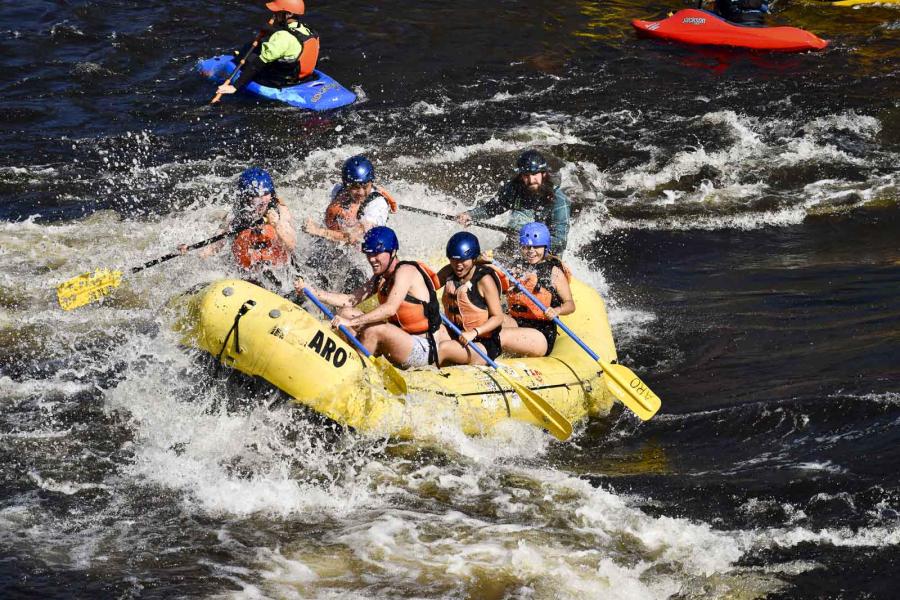
What Cornell memory do you treasure the most?
One that stands out is my senior homecoming week this past year. My freshman one was canceled due to Covid, my sophomore one I missed for a race in New Hampshire, my junior one I was at a silent Buddhist retreat and my senior one was fantastic. To get one of the Yell Cornell sweatshirts, I participated in all the passport activities such as Slope sunset, taking a picture with the bear statue and going to Ho Plaza. It was a great excuse to celebrate Cornell with a bunch of different friends. I also got the opportunity to fight my way to the front row of a Steve Aoki concert, which was awesome. Over the weekend, I attended the fireworks/light show and hung out with everyone in Collegetown. To cap off the week, I went white water rafting in Watertown.
Where do you dream to be in 10 years?
In 10 years, I hope to be happy. To achieve that, I will have to find meaning in the impact of my work alongside intellectual fulfillment. In practice, I’m interested in working for organizations such as the State Department, the U.S. Agency for International Development and the World Bank. It is my dream to simultaneously address climate change and global poverty, so I hope to do so at one of those organizations. It is difficult to determine where you can maximize your impact based on your skills and interests, so I will be spending the next 10 years figuring that out.
Every year, our faculty nominate graduating Arts & Sciences students to be featured as part of our Extraordinary Journeys series. Read more about the Class of 2024.
